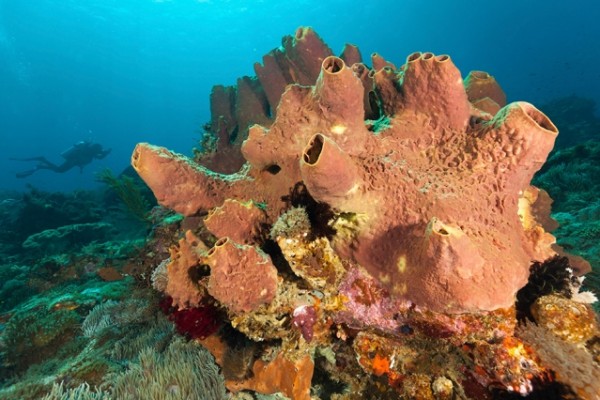By Ana Verayo, | February 26, 2016

MIT researchers found that sea sponges are the first animals on Earth.
Scientists say that the first animal to ever exist on Earth was probably a humble sea sponge according to a new study.
Researchers from the Massachusetts Institute of Technology (MIT) reveal that sea sponges were already thriving during the early stages of ecosystem development on Earth, even before majority of animals began appearing millions of years later.
Like Us on Facebook
New evidence from genetic analyses confirmed that a mysterious molecule from a rock specimen originally comes from a sea sponge, dating back to 640 million years ago. This would suggest that sea sponges were already existing even before the Cambrian explosion which occurred some 540 million years back, at a time when animals began to diversify into different groups, families and species.
According to MIT's David Gold, this evidence was brought about by paleontological and genetic evidence, building a solid case for a molecular fossil coming from sponges. He considers this as one of the oldest evidence of animal life.
In this new study, researchers analyzed molecular fossils that contain small amounts of molecules that are trapped inside prehistoric rock that can still be found today. Scientists focused their analysis on a lipid molecule 24-isopropylcholestane which is a modified version of cholesterol that is still produced by some modern sea sponges and algae.
In order to identify what kind of organism produced this molecule some 640 million years ago, the team identified the gene that makes the 24-ipc that determines which organisms are carriers, tracking them down until that gene evolved over time. Researchers then studied the genomes of 30 organisms like algae, fungi and sea sponges.
The results revealed that algae and sea sponge species possess the same amount of copies of the gene known as sterol methyltransferase (SMT) that can produce the 24-ipc. Further genome analysis and mapping of evolutionary family tree fossil records revealed that sea sponges were making these molecules for a long time already even before algae.
Previous studies back in 2009 by Gordon Love and his team of the University of California at Riverside already investigated this 640 million year old rock specimens discovered in Oman and confirmed the presence of 24-ipc.
With this crucial discovery, this can reveal how sea sponges and animals eventually developed millions of years ago, leading to more questions about the nature of early organisms and Earth's environment millions of years ago.
This new study is published in the journal Proceedings of the National Academy of Sciences.
-
Use of Coronavirus Pandemic Drones Raises Privacy Concerns: Drones Spread Fear, Local Officials Say

-
Coronavirus Hampers The Delivery Of Lockheed Martin F-35 Stealth Fighters For 2020

-
Instagram Speeds Up Plans to Add Account Memorialization Feature Due to COVID-19 Deaths

-
NASA: Perseverance Plans to Bring 'Mars Rock' to Earth in 2031

-
600 Dead And 3,000 In The Hospital as Iranians Believed Drinking High-Concentrations of Alcohol Can Cure The Coronavirus

-
600 Dead And 3,000 In The Hospital as Iranians Believed Drinking High-Concentrations of Alcohol Can Cure The Coronavirus

-
COVID-19: Doctors, Nurses Use Virtual Reality to Learn New Skills in Treating Coronavirus Patients







